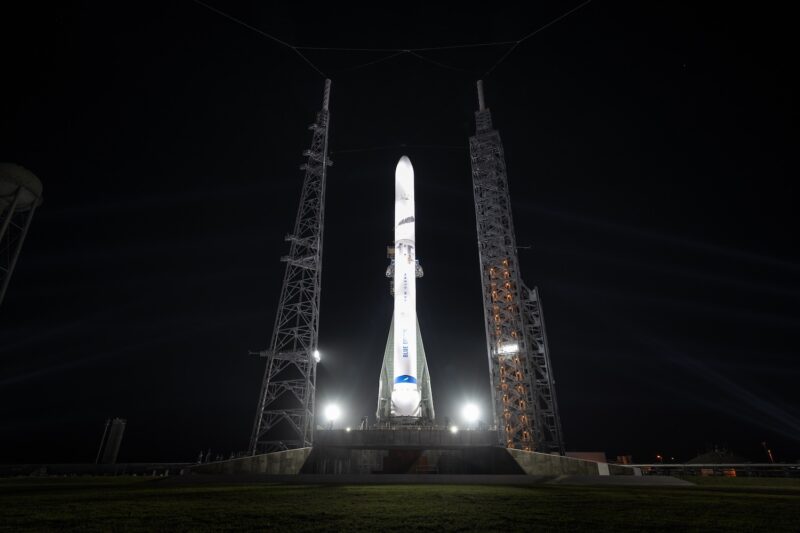Latest News

Blue Origin’s New Glenn vehicle rolled out and upended for the first time in February 2024 to undergo a series of tanking and mechanical system tests. Photo: Blue Origin
Under an umbrella worth up to $5.6 billion over the next five years for at least 30 launches, U.S. Space Force’s Space Systems Command on June 13 made its first National Security Space Launch (NSSL), Phase 3, Lane 1 awards to Blue Origin, SpaceX, and United Launch Alliance (ULA). This is the first time Blue Origin is part of the contract.
ULA, a joint venture of Lockheed Martin and Boeing, and SpaceX, owned by Elon Musk, have been the NSSL providers through Phase 2.
The companies are eligible to compete on launches in a window that lasts through June 2029, with an option for another five years.
Other launch providers may enter the field, beginning in the first quarter of fiscal 2025 – this October through December.
“As we anticipated, the pool of awardees is small this year because many companies are still maturing their launch capabilities,” Brig. Gen. Kristin Panzenhagen, SSC’s program executive officer for assured access to space, said in a June 13 SSC statement. “Our strategy accounted for this by allowing on-ramp opportunities every year, and we expect increasing competition and diversity as new providers and systems complete development.”
SSC said on June 13 that it expects to award Phase 3, Lane 2 contracts this fall.
The Phase 3, Lane 2 contracts “will include missions that require full mission assurance with NSSL-certified launch vehicles,” SSC said. “The payloads included in Lane 2 require launches to more stressing orbits than Lane 1, necessitating higher performance launch systems, and complex security and integration requirements.”
Get the latest Via Satellite news!
Subscribe Now